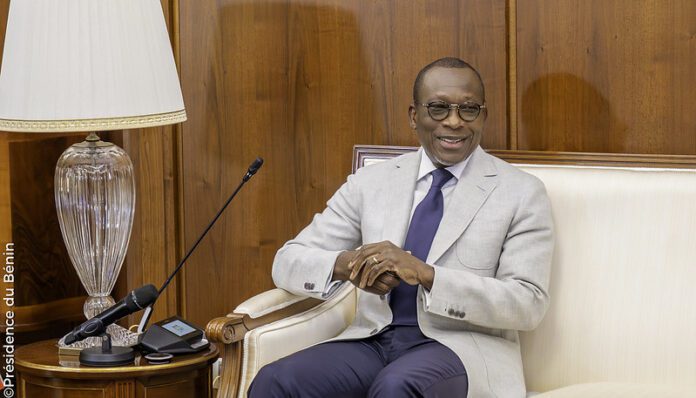These remarkable results were commended by the IMF mission team during a joint review visit to Cotonou in April 2025. “Economic activity was stronger than expected […] and program performance has been strong, with all quantitative targets met,” said Frédéric Lambert, IMF Mission Chief.
Structural transformation underway
Benin’s economic growth is no longer reliant solely on transit trade or raw agriculture. The country is undergoing rapid economic diversification, driven by the expansion of value-added exports, local processing of raw materials, and a booming tech sector. This structural repositioning is laying the groundwork for more resilient and inclusive growth.
The Glo-Djigbé Special Economic Zone (GDIZ), now fully operational, is attracting investment in textiles, agribusiness, and electronics assembly. These industrial clusters are building local value chains and contributing to a gradual narrowing of the current account deficit.
Exemplary fiscal governance
Since 2022, Benin has engaged in a strong fiscal consolidation effort, marked by a significant increase in domestic revenue mobilization, supported by digitalization of the tax system and bold tax policy reforms. The tax-to-GDP ratio has risen by more than two percentage points between 2022 and 2024, reflecting a broadening of the tax base.
Simultaneously, prudent expenditure management has allowed the government to contain the deficit while scaling up social spending in health, education, and social protection.
Human capital at the core of development strategy
The Government Action Program (PAG 2021–2026) places human capital development at the heart of national priorities. Key flagship policies include free secondary education for girls, a national school meals program covering 95% of rural primary schools, and the ARCH system providing access to health insurance and social pensions.
A central pillar of this approach is the single social registry, which enables better targeting of vulnerable populations and enhances the efficiency of public programs.
Leadership and global partnerships
Under the stewardship of Senior Minister of Economy and Finance Romuald Wadagni, Benin has reinforced the trust of international partners. The IMF has disbursed nearly $650 million under the ECF and EFF arrangements, alongside an additional $200 million under the Resilience and Sustainability Facility (RSF) to bolster climate resilience.
This macroeconomic stability has paved the way for Benin’s return to international capital markets in 2023, with improved credit ratings and growing investor confidence.
Toward green and sustainable growth
Benin’s ambitions go beyond growth. The country is actively pursuing a green transition, with reforms in fuel subsidies, support for renewable energy production, and a new climate-resilient building code.
A national green taxonomy is being developed to channel private investment into sustainable projects, while discussions are underway to reform utility pricing for water and electricity in a fair and sustainable manner.
A vision turned into reality
Benin stands as a testament to what can be achieved through strategic vision, disciplined fiscal management, and a deep commitment to reform. As Africa seeks homegrown models of sustainable development, Benin is fast emerging as a beacon of economic governance and resilience in West Africa.
Views: 9


